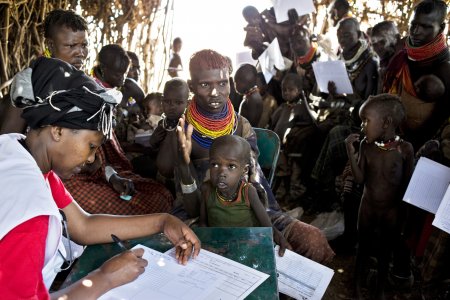
Race and health. A fascinating article on the history of medicine
Rony Brauman
An article entitled "Médecines du corps noir" [Medicine and the black body], published on the La vie des idées website on 27 April, discusses three American history books on the origins of medicine in the United States in the context of slavery in the 18th and 19th centuriesR. A. Hogarth, Medicalizing Blackness ; D. C. Owens, Medical Bondage ; D. R. Berry, The Price for Their Pound of Flesh. Between experimentation and resistance, the history of relationships between race and health illustrates the decisive role played by African slaves.
This article explains that modern-day gynaecology is founded on medical experiments carried out on black women at the start of the 19th century, and later on young Irish immigrant women whose bodies, like those of black women, were, on the basis of race and class, also thought to be “strange and pathological” (Cooper Owens, Medical Bondage, p. 106). The article also discusses the contradictory representations of the black body, considered inferior but worthy of scientific study, as well as many other points which dissociate the history of medicine and the history of medical care.
Humanitarians often use the services of anthropologists to help them understand the "representations of diseases" (AIDS, tuberculosis, Ebola) supposedly conveyed by the societies in which they appear. There are a number of Crash publications on this subject, including "L'Exotisme humanitaire", a blog article by Marc Le Pape published in 2012 which analyses the often erroneous culturalist convictions used to explain the pejorative evaluation of a type of behaviour, drawing on AIDS treatment and care on MSF's Homa Bay project in Kenya to support his arguments. Rather than culturalist convictions, he prefers the notion of cultural curiosity in order to “go beyond a strictly functional relationship with the operating environment, and […] as a defence against the certitudes that commonly surround medical practice».
To cite this content :
Rony Brauman, “Race and health. A fascinating article on the history of medicine ”, 7 mai 2018, URL : https://msf-crash.org/en/blog/medicine-and-public-health/race-and-health-fascinating-article-history-medicine
If you would like to comment on this article, you can find us on social media or contact us here:
Contribute


Add new comment